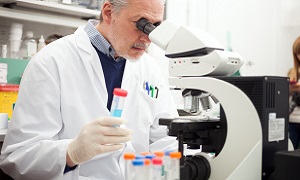Lynch Syndrome
Lynch Syndrome is an inherited condition that can increase a person’s risk of developing certain cancers such as colorectal cancer, before the age of fifty. It may also be referred to as nonpolyposis colorectal cancer.
People having Lynch syndrome can have a lifetime risk of having colorectal cancer, endometrial cancer, ovarian cancer as well as stomach cancer. Lynch syndrome can also make cancer more likely in parts such as the skin, brain, kidney, liver, gallbladder, small intestine as well as urinary tract.
Lynch syndrome is known to be the most common inherited cancer syndrome and affects as many as 1 in every 370 people in Western nations.
Symptoms
People having Lynch syndrome may develop noncancerous growths in the colon. These benign growths are also known as polyps. However, it is to be noted a number of colon polyps that develop are not affected by Lynch syndrome.
Some other symptoms and complications that lynch syndrome can lead to, include the following:
- Stomach pain
- Bleeding inside the gut
- Constipation
- Fatigue
- Unintentional weight loss
- Glioblastoma, an aggressive type of brain tumor
- Reduced ability to absorb nutrients from foods
Causes
Lynch syndrome is known to run in families in an autosomal dominant inheritance pattern. Therefore, it means that if one parent carries a gene mutation for Lynch syndrome, a fifty percent chance is there that mutation will be passed on to each child. The risk of this syndrome is the same whether the father or the mother is a gene mutation carrier or whether the child is a son or daughter.
The genes which are affected in Lynch syndrome are responsible for correcting the changes in the genetic code.
Your genes contain DNA, which is responsible for carrying instructions for every chemical process in your body. As your cells continue to grow and divide, they make copies of their DNA and in some cases, there might be few minor mistakes.
Although normal cells have certain mechanisms that help them to identify mistakes as well as to repair them, the cells of people inheriting one of the abnormal genes which are associated with Lynch syndrome, lack this ability to repair these kinds of mistakes. Genetic damage is caused when there is an accumulation of these mistakes, and eventually, this can cause the cells to become cancerous.
Diagnosis
A doctor can determine whether you have a genetic mutation that is associated with Lynch syndrome by analyzing your DNA. Before genetic testing, a doctor might review your personal and family medical history to determine how likely you are to have Lynch syndrome.
People who are having Lynch syndrome can choose to learn more about the condition by seeing a genetic counselor.
Treatment
Treatment for this condition can vary, depending on whether a person is showing signs of colorectal cancer or not.
People who are having cancer, but have not developed cancer might want to schedule regular colonoscopies and cancer screenings.
During a colonoscopy, a doctor is going to examine the colon and rectum for signs of abnormal cell growth. It is also often possible to remove colon polyps during this procedure.
Some people can choose to undergo a prophylactic colectomy, which involves removing the colon before colon cancer develops.
For people having Lynch syndrome and also having colorectal cancer, the following treatments are generally available:
Polypectomy
Colectomy
Ablation
Cryosurgery
Embolization
Complications
Other than causing complications for your health, a genetic disorder like Lynch syndrome can also raise several concerns. Some other aspects of your life which might be affected include the following:
Your privacy – The results of your genetic test will be listed in your medical record, which insurance companies and employers will be able to assess.
Your children – If you have Lynch syndrome, your child or children have a risk of inheriting your genetic mutations as well. If one parent carries a genetic mutation for Lynch syndrome, there ‘is a fifty percent chance of each child inheriting that mutation. A genetic counselor may help you to develop a plan in order to discuss this with your children. This includes how and when to tell them and when they should consider going for testing.
Your extended family – A Lynch syndrome diagnosis can have implications on your entire family since there is a chance that Lynch syndrome is present in many other blood relatives as well. A genetic counselor can help you to find the best way to tell your family members that you’re going to have genetic testing and what that the results mean.
Prevention
There is no way to prevent colorectal cancer completely, but people are able to lower their risk by getting colorectal cancer screenings.
Obesity has been linked to several different cancers, which include the following:
- Colorectal
- Esophageal
- Liver
- Kidney
- Ovarian
- Breast
- Gallbladder
- Stomach

